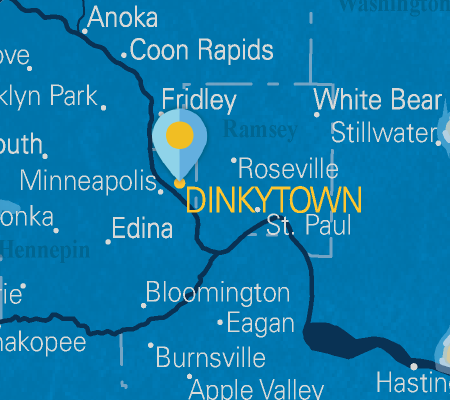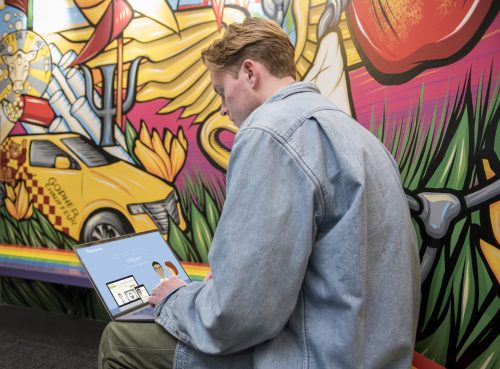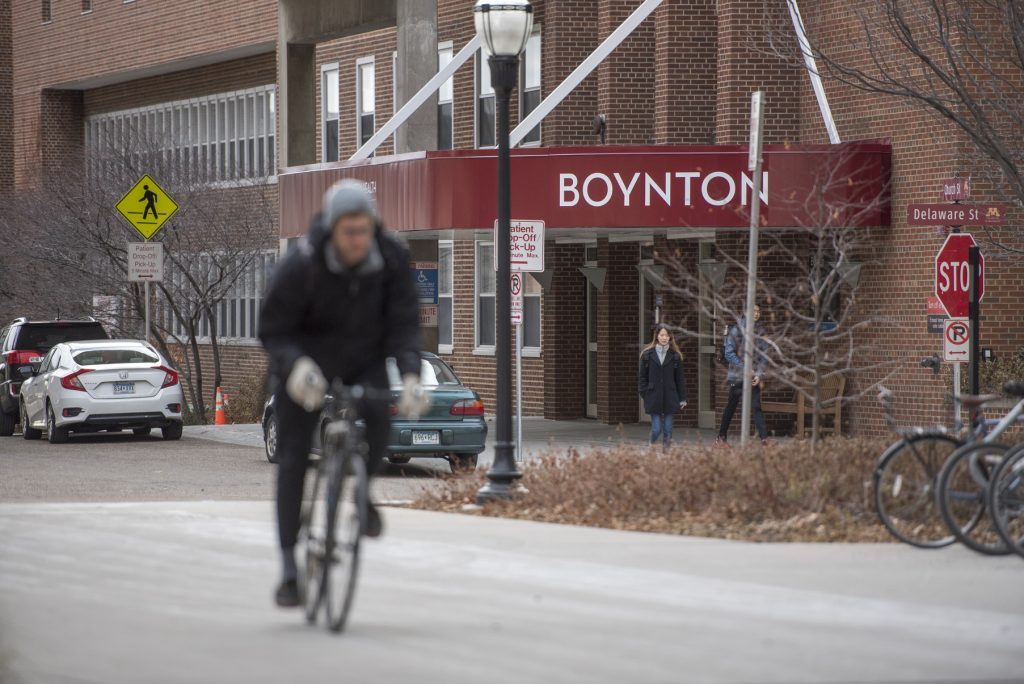
University of Minnesota offering online therapy to students
The university offers online cognitive behavioral therapy program to students free of charge, with promising early results

University of Minnesota student, Sawyer, uses the online program to strategically manage stress.
Susann Jackson, senior administrative director of student health benefits at the University of Minnesota, has seen a lot in her 44-year career. But she’s never seen anything like the rise of anxiety in students today. It’s a challenge that universities face across the nation, with studies showing that one in three college students struggle with a mental health disorder. It’s become an epidemic and universities are working hard to find additional ways to deliver care. It’s what led Jackson to push for offering students an online cognitive therapy program.
“We started by offering online cognitive behavioral therapy (CBT) to students enrolled in our health plan but expanded it to all of our students on all of our campuses,” Jackson says.
It’s easy to see why. Online therapy is a snap for students to access. They receive a unique code that gives them access to the online curriculum for free. When they enroll, they are taken through a series of evaluations, which follow the same diagnostic inquiry as if a human being were asking the questions. After the evaluation the students are given their results and placed in an appropriate program in one of four areas: stress, anxiety, depression, and insomnia. From there students start a series of eight lessons, following cognitive behavior theory, which focuses on redirecting harmful thought patterns and behaviors. The lessons are online, interactive, and can be accessed 24-7.
Katherine Siqueiros, student health benefits manager at Boynton Health Service at the University of Minnesota, has been impressed by the enrollment rates so far.
“In this first year that we implemented online therapy, we had 2,372 students use one of the cognitive behavior programs, and over 5,000 students who took one of the assessments and engaged with the program in one way or another,” she says. “We’re excited that students are receiving care in this way.”
Siqueiros finds that students use online therapy in different ways. Some use it as an augment to existing therapy. Others use it as a stand-alone treatment since they don’t want to see a therapist. Treatment delivered this way is more comfortable to them.
Jackson says the university is committed to providing the program for a couple more years for free.

Boynton Health serves the University of Minnesota Twin Cities, providing comprehensive health care with a public health approach to campus well-being.
